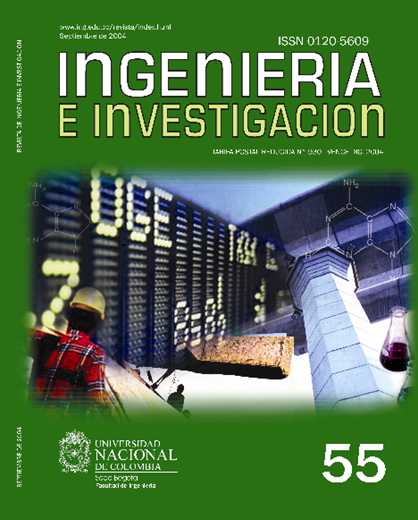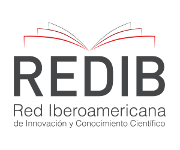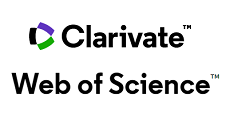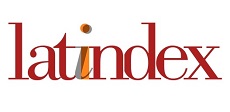Case study in Mexico: the civil engineering students give opinion about their weaknesses at the time they leave the university
Estudio de caso en México: los alumnos de ingeniería civil opinan sobre las debilidades de egreso
DOI:
https://doi.org/10.15446/ing.investig.v24n2.14599Keywords:
eduactional research, qualitative research, civil engineering, students, professors, employers (en)investigación educativa, investigación cualitativa, ingeniería civil, alumnos, profesores, empleadores (es)
Downloads
This research deals with the problem of the perception, that the civil engineering students have, about the profession at the time when they conclude their studies. The research methods used are based in a qualitative and exploratory approach in order to get the students perceptions of their professional weaknesses at the time they leave the university. These perceptions are complemented and contrasted whit those coming from professors and employers that interact with the students during their studies and when they get involved in the professional practice, respectively. The results showed that, accordingly to their experiences, the students have a narrow vision of their profession. In addition, the student’s opinions about their weaknesses when they started their professional studies and about the curricular contents they considered as low in utility and high in difficulty was also explored.
Esta investigación aborda el problema de la percepción que los estudiantes de ingeniería civil tienen de la profesión al momento de concluir sus estudios. La metodología utilizada se basa en un enfoque cualitativo y exploratorio sobre lo que ellos consideran sus debilidades de egreso de la universidad. Su percepción se complementa y contrasta con opiniones vertidas por profesores y empleadores que interrelacionan con los alumnos durante su formación y su inicio en la práctica profesional. Los resultados mostraron que, de acuerdo con su corta experiencia, los alumnos poseen una visión estrecha de la profesión. Como complemento, también, se exploró la opinión de los estudiantes respecto a sus debilidades de ingreso a la universidad, y a los contenidos del currículo que consideraron de poca utilidad y de alta dificultad.
References
Beder, S. (1999), “Beyond Technicalities: Expanding Engineering Thinking”., Journal of Professional Issues in Engineering Education and Practice, ASCE, January 1999, 12-18. DOI: https://doi.org/10.1061/(ASCE)1052-3928(1999)125:1(12)
Cayes, K. (1998), “The Need to Learn, and Why Engineers may be Poor Students”, Journal of Management in Engineering, ASCE, March-April, 1998, 31-35. DOI: https://doi.org/10.1061/(ASCE)0742-597X(1998)14:2(31)
Cross, H. (1970), Engineers and Ivory Towers, 1st edition, McGraw-Hill Book Company, Inc. USA.
Hernández, R.; Fernández, C. y Baptista, P (2003), “Metodología de la investigación”, 3ra edición, McGraw-Hill, México.
Hoy W. and Miskel, C. (2000), “Educational Administration: Theory, Research and Practice”, 6a. edition, Random House, New York.
Kraft, W. (1997), “Building a Consensus: How Tos and How not Tos”, Journal of Management in Engineering, ASCE, May-June, 1997, 20-24. DOI: https://doi.org/10.1061/(ASCE)0742-597X(1997)13:3(20)
Miles M. and Huberman M. (1994). “Qualitative Data Analysis”, 2a. edition, Sage Publications, Beverly Hills.
Rodríguez, G.; Gil J. y García, E. (1999), “Metodología de la investigación cualitativa”, 2da edición, Ediciones Aljibe, Málaga.
How to Cite
APA
ACM
ACS
ABNT
Chicago
Harvard
IEEE
MLA
Turabian
Vancouver
Download Citation
License
Copyright (c) 2004 Rómel G Solís Carcaño, Carlos Arcudia Abad

This work is licensed under a Creative Commons Attribution 4.0 International License.
The authors or holders of the copyright for each article hereby confer exclusive, limited and free authorization on the Universidad Nacional de Colombia's journal Ingeniería e Investigación concerning the aforementioned article which, once it has been evaluated and approved, will be submitted for publication, in line with the following items:
1. The version which has been corrected according to the evaluators' suggestions will be remitted and it will be made clear whether the aforementioned article is an unedited document regarding which the rights to be authorized are held and total responsibility will be assumed by the authors for the content of the work being submitted to Ingeniería e Investigación, the Universidad Nacional de Colombia and third-parties;
2. The authorization conferred on the journal will come into force from the date on which it is included in the respective volume and issue of Ingeniería e Investigación in the Open Journal Systems and on the journal's main page (https://revistas.unal.edu.co/index.php/ingeinv), as well as in different databases and indices in which the publication is indexed;
3. The authors authorize the Universidad Nacional de Colombia's journal Ingeniería e Investigación to publish the document in whatever required format (printed, digital, electronic or whatsoever known or yet to be discovered form) and authorize Ingeniería e Investigación to include the work in any indices and/or search engines deemed necessary for promoting its diffusion;
4. The authors accept that such authorization is given free of charge and they, therefore, waive any right to receive remuneration from the publication, distribution, public communication and any use whatsoever referred to in the terms of this authorization.



























